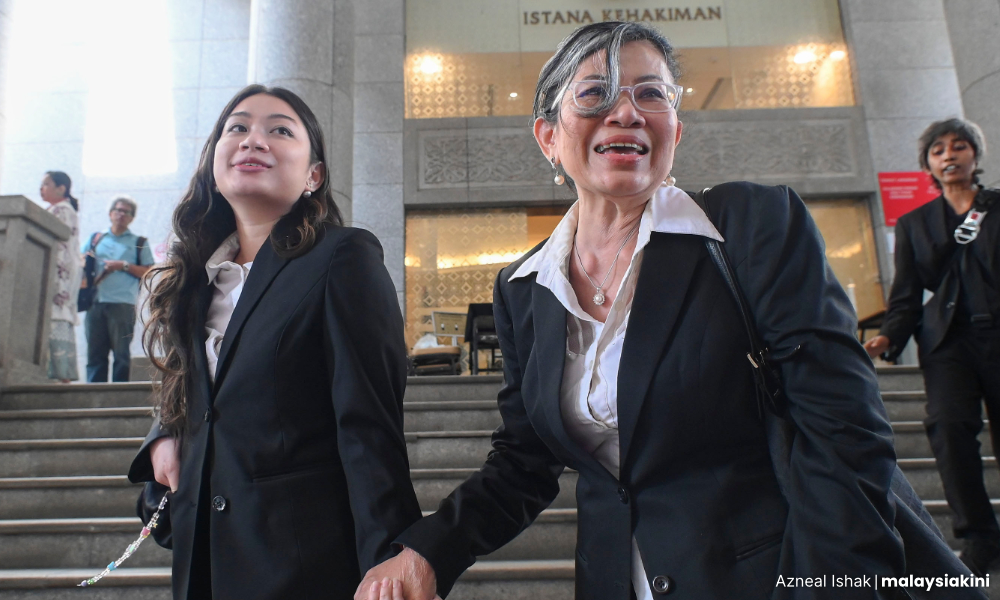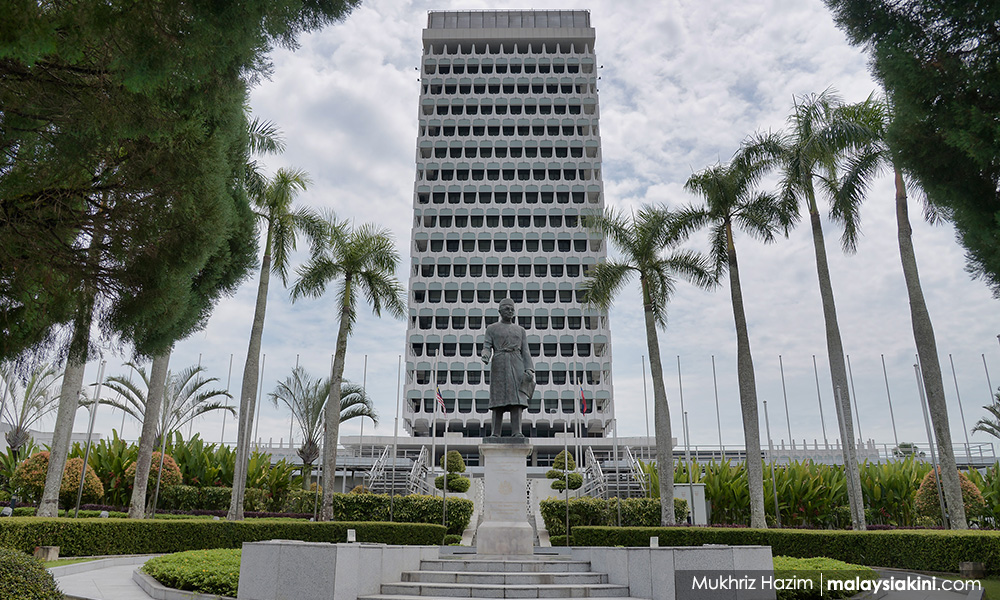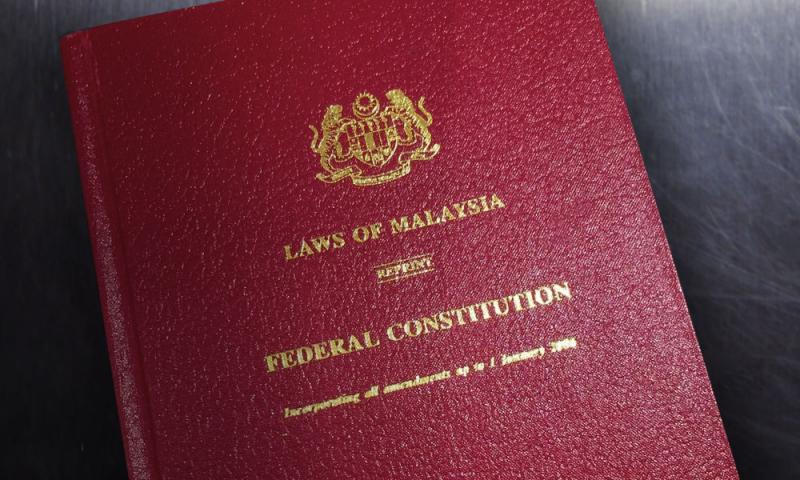MP SPEAKS | Constitutional amendments must involve all states
MP SPEAKS | I have attended several forums on the Federal Constitution and the Malaysian Agreement 1963 (MA63) during the week in Kuala Lumpur.
My understanding and appreciation of the concern of many Malay Muslims in Peninsular Malaysia regarding the Federal Court’s decision on the Nik Elin Zurina Nik Abdul Rashid’s case which nullifies their demand for the Federal Constitution to be amended to offset the effect of the Federal Court’s verdict has been further enriched.
Be as it may, both the verdict and the demanded amendment involve the Ninth Schedule of the Federal Constitution, which demarcates the legislative powers between the federal and state governments into three categories, those exclusively under the federal government (under the Federal List or List I), those exclusively under the state governments (under the State Lists, namely Lists II and IIA) and those shared by both (under the Concurrent Lists, namely List III and IIIA).
Furthermore, I must remind every quarter, including the federal government, that the Ninth Schedule is a core part of the Federal Constitution.
It is one of the 12 core documents annexed to the Malaysia Agreement 1963 (MA63), an International Treaty entered upon and signed by: the United Kingdom and Northern Island; the Federation of Malaya; North Borneo (Sabah); Sarawak; and Singapore.
Hence, any amendment to the Federal Constitution must involve all states, especially Sabah and Sarawak, and the deliberation must be inclusive and not be obstructed by ethnoreligious supremacy sentiments and the threat of violence.
As the first mandate holders to protect the MA63 representing their respective states, Sabah Chief Minister Hajiji Noor and Sarawak Premier Abang Johari Openg must stand firm to ensure any amendment to the Ninth Schedule would not be rushed through in a majoritarian manner.
Majoritarianism undermines the moral basis and territorial integrity of Malaysia, as Sabah (including Labuan) and Sarawak would be subjugated due to our demographic weight.
Malaysians must accept that the real social contract is the Federal Constitution, which was the basis for the negotiation of MA63 and subsequently incorporated amendments caused by MA63. As a package deal, this “contract” that binds us together as a nation.
While the Federal Constitution is not cast in stone, as one, any amendment must be prudently and inclusively deliberated and negotiated, where no one is told or threatened to shut up.
To pre-empt any unilateral, majoritarian and hurried amendments to the Ninth Schedule, the Sabah chief minister and the Sarawak premier should initiate Sabah’s and Sarawak’s own public deliberation on the Ninth Schedule and propose their desired amendments. Such deliberation of course must be multi-ethnic, multi-religious and multi-partisan, as the Ninth Schedule came as a package when MA63 was negotiated.
These deliberations can take a formal form like a Consultative Council, which can prepare the Borneo regions for an Inter-Governmental Committee 2.0 (IGC 2.0) in future, for the formulation of a new constitution which was promised in the MA63 negotiation but never carried out.
Surely this would be welcomed by Prime Minister Anwar Ibrahim who upholds MA63 and espouses the ideal of Madani, which includes the values of “respect” and “trust”.
Nik Elin case and MA63
To counter misinformation that Malaysians in Borneo especially non-Muslims have to let Peninsular Malay Muslims exclusively dictate how the Ninth Schedule should be amended, the governments of Sabah and Sarawak should help their citizens understand the Federal Court’s ruling on the Nik Elin case, in the context of MA63.
Their state Attorney-General’s Chambers can play an active role in disseminating the correct information and facilitating public discussion.
The Federal Court’s ruling was based on Item 1 of List II (the general State List) which gives powers on Islam to the state governments in their respective states and the federal government as the state-level authority in the Federal Territories of Kuala Lumpur, Labuan and Putrajaya.
In relation to the syariah criminal laws, it states clearly that “… creation and punishment of offences by persons professing the religion of Islam against precepts of that religion, except in regard to matters included in the Federal List…”
While we understand that many Malay-Muslim nationalists dislike this limited scope of the syariah criminal laws and syariah courts, this is a core part of the social contract that created the Federation of Malaya in 1957 and enabled the formation of the Federation of Malaysia in 1963. The Federal Court’s decision is but affirming the social contract, not changing it.
As defenders of MA63, we are thankful to Selangor ruler Sultan Sharafuddin Idris Shah as the chairperson of the National Council for Islamic Affairs (MKI), for calling on all quarters to respect the Federal Court’s decision.

We are thankful to Nik Elin and her daughter Tengku Yasmin Nastasha Abdul Rahman for their initiative to file the challenge withstanding tremendous public pressure.
We are thankful to Chief Justice Tengku Maimun Tuan Mat and seven other Federal Court judges who acknowledged their loco standi in filing the challenges.
Sultan Sharafuddin, the eight Federal Court judges, Nik Elin and Tengku Yasmin are true patriots for an inclusive Malaysia. They brave attacks from many Malay-Muslim nationalists who cannot accept that Malaysia is a country for all Malaysians in both the peninsula and Borneo.
For some Malay-Muslim supremacists, the Federal Constitution is but a colonial leftover that should be undone and likewise, MA63 is discardable.
But be warned, don’t even think about it.
Core elements
The MA63 is an International Treaty duly registered with the United Nations. But if you really want to discard MA63, I am sure Malaysians in Borneo would not mind if the Malaysia Act were to be done away with and thus discarded so that we can go our separate ways.
The Constitution is of course not cast in stone, but amendments - especially those affecting core elements like the Ninth Schedule - must be deliberated inclusively, rationally and thoroughly before the vote in Parliament.

For Sabahans and Sarawakians, including non-Muslims, to be heard on any amendment to Item 1 of the Ninth Schedule is not at all an infringement on Islam and Muslim affairs. Instead, it is based on two legitimate grounds.
First, constitutions and laws can have unintended or unexpected consequences, and the argument that they only affect the intended parties in the expected ways is naïve and ignorant of the world’s complexity.
The 1988 amendment to Article 121 with the insertion of Clause 1A “The [High Courts of Malaya, and of Sabah and Sarawak] shall have no jurisdiction of the syariah courts” under former prime minister Dr Mahathir Mohamad is one clear evidence of how constitutional changes theoretically affecting only the Muslims have caused many plights for many non-Muslims including non-Muslim parents who lose their unilaterally converted children.
Second and most importantly, Item 1A of List I is part of the Ninth Schedule, which came as a package to our foreparents in Sabah and Sarawak in the MA63 negotiation.
If some in the peninsula do not like how Item 1A is framed, we in Borneo also have our ideas on how other items should be reframed. Hence, we should renegotiate this core part of our social contract for Malaysia. Let us have an IGC 2.0 if needs be.
I call upon all Malaysians, especially political leaders in Sabah (including Labuan) and Sarawak to look at the Ninth Schedule from the long-term well-being and sustainability of Malaysia. Let’s be civil, rational and considerate in discussing this delicate matter.
For those of us in Sabah and Sarawak, we must not let ourselves be divided along ethno-religious lines such that we become the tool of divide and rule by some Peninsular forces.
We must uphold our inclusive way of life, as in most parts of the Nusantara region, where multifaith families are celebrated and blood ties are not severed by religious politics.
WILFRED MADIUS TANGAU is Tuaran MP.
The views expressed here are those of the author/contributor and do not necessarily represent the views of Malaysiakini.
RM12.50 / month
- Unlimited access to award-winning journalism
- Comment and share your opinions on all our articles
- Gift interesting stories to your friends
- Tax deductable
